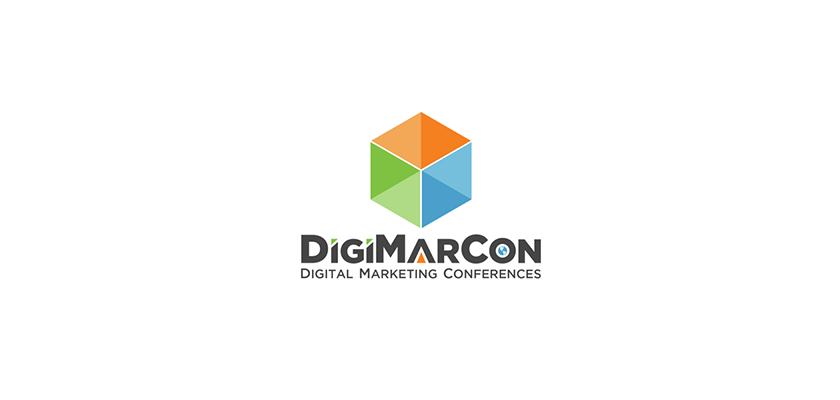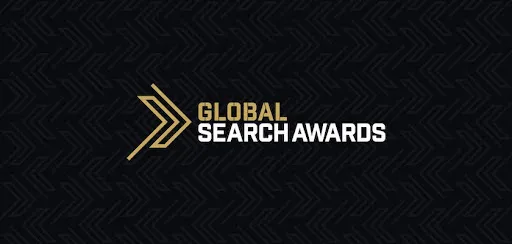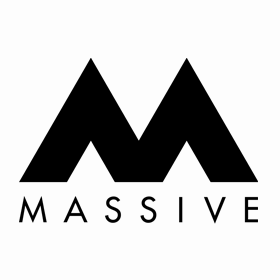
8 Time Wasters That Are Costing Your Agency
Time is money. And the more time your team spends on client campaigns and agency growth, the more money will come in.
Unfortunately, there are a lot of tasks that can eat up the day and reduce your agency’s productivity.
In this article, we show you how to eliminate the tasks that are costing your agency valuable hours and holding back your team.
Eliminating Your Agency’s Biggest Time Wasters
According to a report by HubSpot, the average marketer spends 16 hours per week on routine and repetitive tasks. That equates to over 1/3 of their time on non-billable work. The biggest offenders based on this report? Sending emails and collecting data:
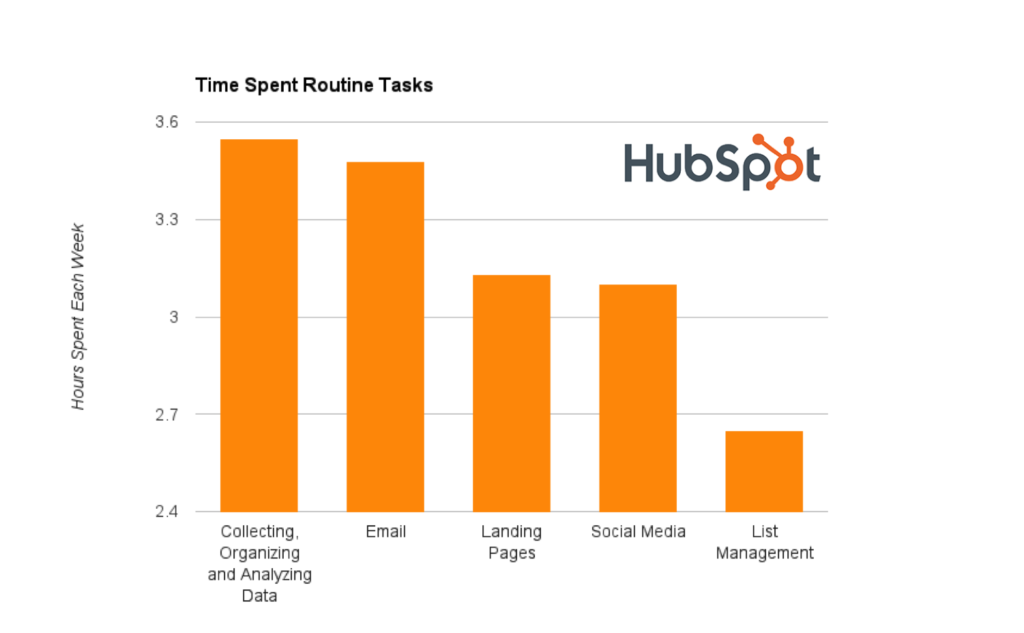
- Sending out emails takes marketers an average of 3.48 hours a week. This includes company emails as well as client campaign emails.
- Collecting, organizing, and analyzing marketing data from different sources take an average of 3.55 hours a week.
Top 12 Things Marketing Agencies Spend Time Working On
If you’re wondering where to look for these time wasters, take a look at the following time-consuming activities:
- Client Communication & Management
- Billing & Invoicing
- Prospecting/New Business
- Accounting/Finance
- Research
- Creative Development
- Campaign Strategy
- Executing & Optimizing Programs
- Meetings
- Administrative Tasks
- Talent and Company Culture
- Client Reporting
Although necessary, most of these activities aren’t billable. Agencies that are trying to scale need to free themselves from some of these things that could be causing a growth bottleneck.
Refocus Your Time On Revenue-generating Activities
Free up more time to focus on revenue-generating activities such as client campaigns and business growth, including:
- Prospecting for new clients to increase revenue.
- Optimizing campaign performance to turn clients into evangelists.
- Improving your team’s work/life balance, which aids in morale and talent retention.
- Focusing on the fun stuff, like creative development and campaign strategy.
- Reducing stress, which can lead to a lower level of staff burnout for agency staff and owners.
Top 8 Time-Wasting Activities Your Agency Should Streamline Today
Although there are always ways to find improvements in business processes, task management, and client reporting, here are some of the most common time-wasters we’ve seen hamper marketing agencies.
1. Inefficient Communication
Constantly sending emails back and forth, having long meetings to discuss things, and switching between multiple modes of communication eats up a lot of your time. Instead, try to streamline communication and reduce the notification noise using a project management tool like Asana, ClickUp, Trello, or the AgencyAnalytics task management tool. This will help you stay organized and on track and reduce the time spent going back and forth to keep tabs on a particular task.
2. Administrative Tasks
Things like scheduling appointments, bookkeeping, and filing paperwork can take up a lot of time if you’re not careful. Try to automate as many of these tasks as possible with easy-to-use accounting or time management software.
3. Multitasking
There is a lot of debate over whether multitasking is indeed more efficient. Over the past few decades, several studies have shown that multitasking can lead to decreased productivity and increased mistakes.
However, other studies have shown that if you are good at multitasking, it can be more efficient than doing one task at a time. The bottom line is that if someone is not good at multitasking, they should focus on one task at a time and give it their full attention. This will help them work more efficiently and get things done faster.
4. Hunting for Data
In today’s digital marketing world, data is everywhere. Often, this leads to data overload and wasted time trying to locate specific data points from a variety of sources.
Leaders in the marketing field are feeling overwhelmed by the sheer amount of data at their disposal. With so much information to draw from, it can be difficult to determine which data is most important and how to use it to improve campaign performance.
Additionally, as technology advances and more data becomes available, leaders are struggling to keep up with the latest trends and changes. How familiar are you with GA-4 (Google Analytics 4), for example? This can make it difficult to make informed decisions about where to allocate resources and which campaigns to focus on.
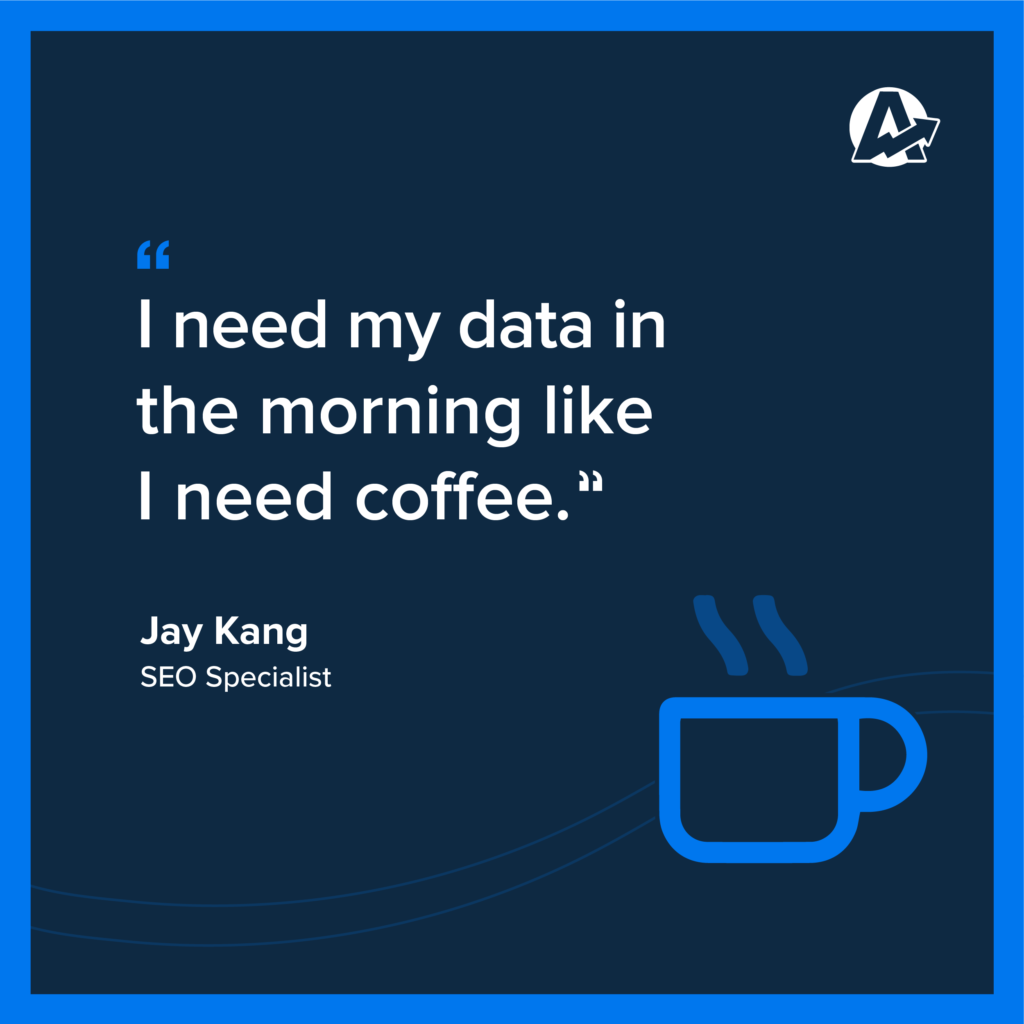
As marketers, we tend to live and breathe the data that is available. But the abundance of data can be both a blessing and a curse for marketing leaders and agency owners. On one hand, it provides them with an endless amount of opportunities to improve client campaigns. On the other hand, it can be difficult to determine what data is most relevant, how to use it effectively, and where to find it.
This is a huge time waster for marketing agencies!
Instead, with a central client reporting tool like AgencyAnalytics, your team easily pulls data from all your client’s marketing platforms into one centralized location. What used to take hours to collate is now done automatically in minutes.
It’s also important to prioritize the data that is most important to your clients and will have the biggest impact on their business.
Tip: Prioritization is also important when it comes to tasks. Implement a prioritization protocol, such as the Eisenhower Matrix, to help your team prioritize tasks based on their urgency and importance.
5. Meetings
We all know the pain of having unproductive meetings. If you’re having too many meetings or meetings that are not well-organized, it can suck a lot of time and energy out of the day. Limit the number of meetings you have and make sure they are productive by using an agenda and sticking to it.
Other tips to make meetings more efficient include:
- Only include the people in meetings who need to be there. There’s very little value to having 12 people sitting at a meeting while only 3 of them are discussing the topic at hand, such as a client’s social media audit.
- Set your default meeting length to 45 minutes instead of the typical hour-long meetings. Those extra 15 minutes can add up quickly when you have a lot of meetings. And make sure to start and end the meetings on time.
- Make sure meetings have a purpose. If they don’t, cancel them.
6. Emails
There are two sides to this particular coin–company emails and client campaign emails.
If you’re spending too much time checking and responding to emails, it’s taking away from time that could be spent on more critical tasks. And the distraction cost of dropping what you’re working on every time you hear that little “ding” that indicates a new email has arrived is costing you way more than you think.
On average, it takes 23 minutes to get back on track after you’ve allowed yourself to get distracted. If you’re checking your email every 30 minutes, that’s only 7 minutes of fully productive time per hour.
To save time, try implementing a batching protocol so that email is only being checked a few times daily (with some exceptions, of course).
When creating and sending campaign emails for clients, don’t try to reinvent the wheel with every single email campaign you create. Templates, reusable blocks, and proven subject line structures can go a long way to streamlining the campaign creation and distribution processes. Of course, you must balance that against running proper A/B tests to always look for new ways to improve the campaign performance.
7. Perfectionism
Spending too much time trying to make everything perfect is taking away precious time that could be spent on more revenue-generating tasks. Instead of striving for perfection, try to focus on getting things done and doing them well.
There are a couple of old sayings that reflect this concept perfectly:
“Don’t let perfect be the enemy of good.” – Voltaire
“Better a diamond with a flaw than a pebble without.” – Confucius
For example, you can spend 1 hour getting something 90% of the way to perfect and then another 10 hours fixing that last 10%. Will that 10% improvement in the finished product drive enough results to make that time investment worthwhile? In most cases, the answer to that question is a resounding “No!” Sometimes it’s better to get it done and iterate to make improvements along the way.
8. Client Reporting
A report from Search Engine Journal showed that the average marketing agency spends nearly the same amount of time (73.7%) reporting on client campaigns as they do execute them.
In fact, the average marketing agency spends up to 3.5 hours on the manual process of gathering, collating, visualizing, and reporting data for each client.
Multiply that number by the number of clients and the number of weeks or months in a year, and you’ve got an enormous amount of time lost to non-billable tasks.
Even agencies with a streamlined (but manual) approach to reporting indicate that the minimum it would typically take them to create these reports manually is 90 minutes.
Instead of spending all that time logging in and out of marketing platforms to copy and paste screenshots and data, pick a tool that can do the heavy lifting for you.
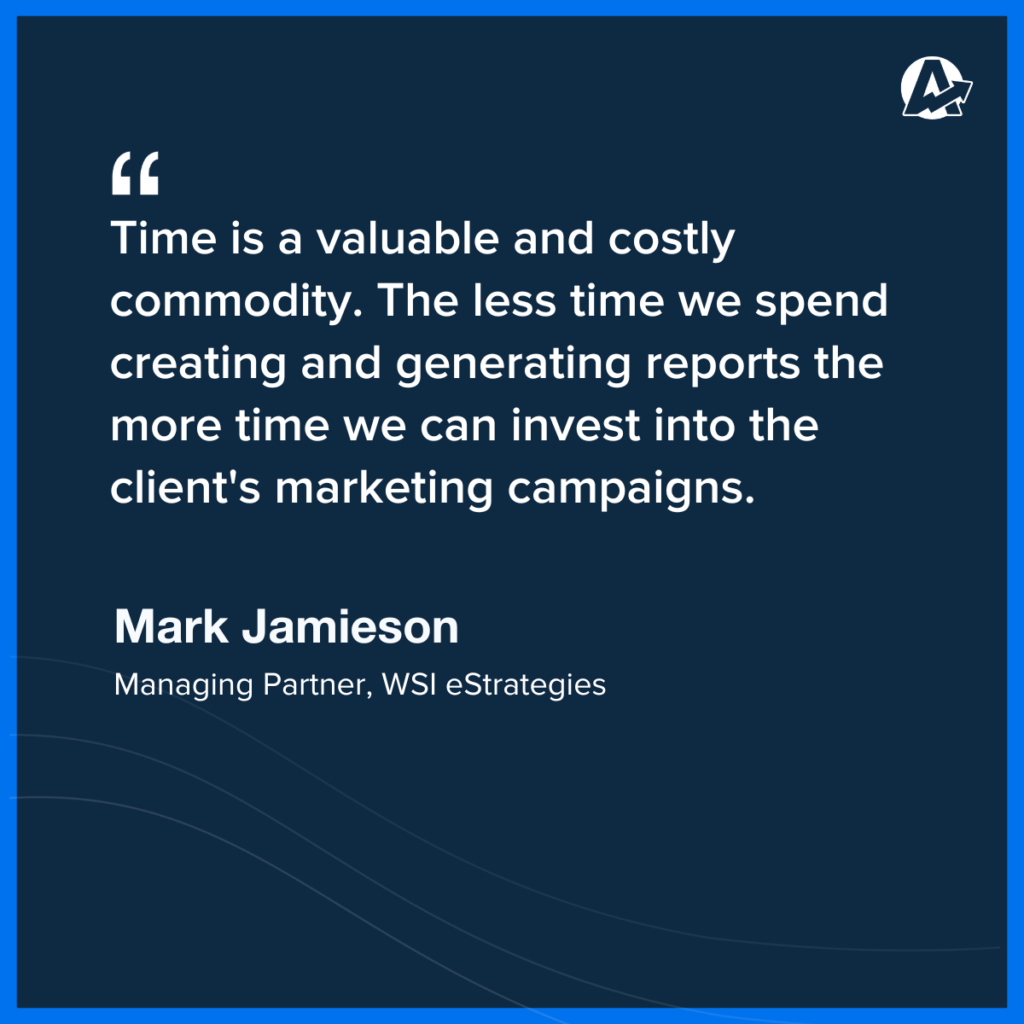
On average, AgencyAnalytics customers report saving 75-80% of the time it used to take them to generate and send client reports once they switched to the platform.
What Is Your Agency’s Time Worth?
The challenge that many agencies face is trying to do everything themselves. Especially during the early days of agency growth, it’s all too common to pinch pennies attempting to do everything in-house and relying less on freelancers and tools that could streamline those processes.
Although every dollar indeed counts, too many agency owners think their time–and their staff’s time–is “free.” But just because it’s already covered by payroll doesn’t mean it’s free to waste. You must look at the value of your time and how it relates to the other activities you could be doing to grow the agency’s bottom line.
If it takes you 3.5 hours to create a client report, and you could do the same using a client reporting tool in 30 minutes, ask yourself how you would spend that extra time and what impact it would have on your agency’s productivity and employees’ well-being.
Let’s look at one example:
- Your agency has 22 clients
- It takes 210 minutes per client to create monthly marketing reports
- Your average billable rate for client work is $150
22 x 2.5 Hours X $150 = $8,250 of Billable Hours wasted on manual reporting processes
You could do the same using the AgencyAnalytics automated reporting tool and win back those hours by creating client dashboards and reports in minutes instead of hours.
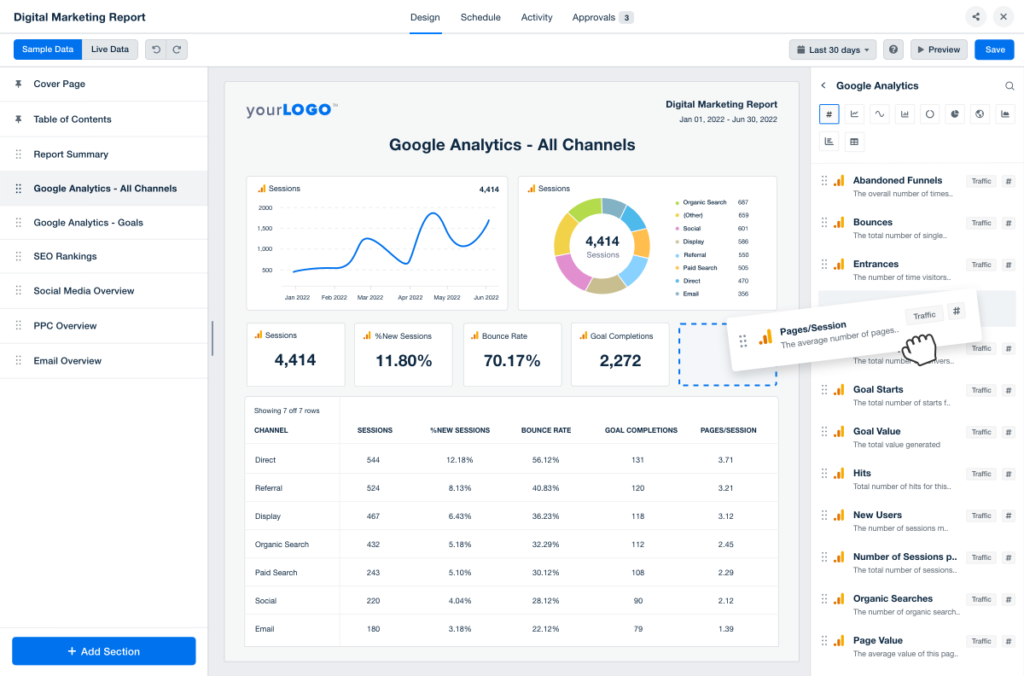
The same formula can be applied to many of these typical time wasters.
- Can you cut 4 hours per month from team meetings? That’s $600 per month for every person in those meetings.
- Are administrative tasks taking up time without providing any value to the agency’s bottom line? Even 30 minutes a week per employee could quickly rack up thousands of extra dollars in billable hours.
- Is there software that can streamline repetitive processes? Every hour you save can be better spent on things that drive the business forward.
A straightforward formula to determine if a tool is worth the investment is to compare it against the time saved by the agency. This can be done in two ways:
Time Saved Based on Salary Costs:

Billable Hours Saved:

Whether you’re looking at savings based on the hard cost associated with the people on your team, or the opportunity cost of time that could be spent on billable activities, the benefits are clear. Use the simple formula to determine whether a platform or tool is worth adding to your marketing agency’s tech stack.
Time Is Your Agency’s Most Valuable Asset. Use It Wisely
Time is the most valuable asset for a marketing agency because it’s finite. An agency has a certain number of hours in a day, week, and month that can be spent on client work and seeking new clients. Once those hours are gone, they’re gone for good.
Agencies that save time using automated reporting tools, outsourcing administrative tasks, and utilizing software that streamlines repetitive processes have more time to focus on billable work and grow their business. Those agencies are better positioned to scale and overtake their competition. Are you one of them?














